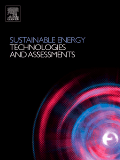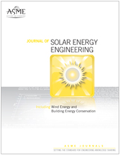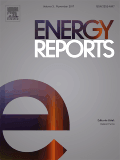
Energy Systems-Optimization Modeling Simulation and Economic Aspects
Scope & Guideline
Transforming Energy Economics with Innovative Modeling Techniques.
Introduction
Aims and Scopes
- Optimization of Energy Systems:
The journal emphasizes the application of optimization techniques in energy systems for enhancing efficiency, reducing costs, and improving sustainability. This includes various methods such as linear programming, mixed-integer programming, and metaheuristic algorithms. - Simulation of Energy Processes:
A core focus is on the simulation of energy processes to predict performance, analyze scenarios, and validate models. This includes dynamic simulations of renewable energy sources, energy markets, and microgrid operations. - Economic Analysis of Energy Solutions:
The journal integrates techno-economic assessments to analyze the viability and sustainability of energy projects, providing insights into cost-benefit analyses, investment strategies, and economic implications of energy policies. - Renewable Energy Integration:
There is a consistent focus on integrating renewable energy sources into existing energy systems, exploring their impact on grid stability, economic feasibility, and environmental benefits. - Energy Management and Policy:
The journal explores energy management strategies and policies, addressing how they can influence system performance, market dynamics, and consumer behavior. - Technological Innovations in Energy:
The journal is committed to publishing research that showcases technological advancements in energy generation, storage, and distribution, particularly those that enhance the efficiency and reliability of energy systems.
Trending and Emerging
- Smart Grids and Microgrids:
Research on smart grids and microgrids is rapidly increasing, focusing on their role in enhancing energy efficiency, reliability, and resilience. This includes studies on demand response, decentralized energy management, and advanced control strategies. - Renewable Energy Optimization:
There is a growing emphasis on optimizing the integration of renewable energy sources, particularly solar and wind, into energy systems. This includes advanced forecasting techniques and hybrid systems that combine multiple renewable technologies. - Machine Learning Applications in Energy:
The application of machine learning and artificial intelligence in energy systems is a burgeoning area of interest. This includes predictive analytics for energy consumption, optimization of energy management systems, and fault detection in energy infrastructure. - Energy Storage Solutions:
Research on energy storage technologies, particularly in the context of renewable energy integration, is gaining momentum. This includes studies on battery technologies, pumped hydro storage, and hybrid systems that enhance grid stability. - Environmental Impact Assessments:
There is an increasing focus on the environmental impacts of energy systems, particularly in the context of policy and regulatory frameworks. This includes life-cycle assessments and sustainability metrics to evaluate energy technologies.
Declining or Waning
- Traditional Fossil Fuel Technologies:
Research related to traditional fossil fuel technologies has seen a decline, as the focus shifts towards renewable and sustainable energy solutions. The increasing urgency for decarbonization and environmental sustainability has led to reduced interest in fossil-based energy studies. - Conventional Power Market Analyses:
There is a noticeable decrease in studies focused on traditional power market structures and analyses. This reflects a broader shift towards more innovative market designs that incorporate renewable energy sources and decentralized energy systems. - Static Energy Models:
Research employing static models of energy systems is becoming less frequent, as more dynamic and adaptive modeling approaches gain traction to better capture the complexities of real-time energy systems and their interactions. - Single-Faceted Energy Solutions:
There is a decline in studies that focus solely on single energy technologies or solutions. The current trend favors integrated approaches that consider multiple energy sources and technologies working in synergy.
Similar Journals

Sustainable Energy Technologies and Assessments
Elevating Knowledge in Energy SustainabilitySustainable Energy Technologies and Assessments is a prestigious journal published by ELSEVIER, based in the United Kingdom, focusing on the critical field of energy engineering and its intersection with sustainability. Since its inception in 2013, the journal has established itself as a leading platform for disseminating innovative research and assessments of sustainable energy technologies, earning a notable Q1 ranking in both Energy Engineering and Power Technology, as well as Renewable Energy, Sustainability, and the Environment. With an impressive Scopus ranking—#22 out of 272 in Energy Engineering and #40 out of 270 in Renewable Energy—this journal is essential for researchers and professionals seeking to advance their knowledge on cutting-edge developments and assessments in sustainable energy. Although the journal operates on a subscription basis, it remains committed to promoting high-quality research that aligns with global sustainability objectives. Researchers and students alike will find invaluable insights and data that shape the future of renewable energy technologies within these pages.

JOURNAL OF SOLAR ENERGY ENGINEERING-TRANSACTIONS OF THE ASME
Pioneering Research for a Sustainable Energy Future.JOURNAL OF SOLAR ENERGY ENGINEERING-TRANSACTIONS OF THE ASME is a premier publication dedicated to advancing the field of solar energy engineering, under the auspices of the prestigious American Society of Mechanical Engineers (ASME). With the ISSN 0199-6231 and E-ISSN 1528-8986, this journal has established itself as a critical resource for researchers and professionals alike, particularly in the areas of energy engineering and renewable technology. Currently enjoying an impact factor that places it in the Q2 category for Energy Engineering and Power Technology and Q3 for Renewable Energy, Sustainability, and the Environment, this journal effectively bridges impactful research and practical application. Spanning contributions from 1980 to 2025, the journal emphasizes empirical studies, innovative methodologies, and sustainable solutions that resonate with the growing global demand for renewable energy. The journal’s commitment to quality is reflected in its competitive Scopus rankings: 97th out of 272 in Energy Engineering and 124th out of 270 in Renewable Energy. Although not an Open Access journal, it remains a vital forum for disseminating research that shapes our energy future. Located in New York, this journal serves as a cornerstone for those in academia and industry to stay abreast of the latest advancements in solar energy technologies and their application in sustainable development.

International Energy Journal
Shaping the Global Energy LandscapeInternational Energy Journal is a pivotal academic publication dedicated to advancing research and knowledge in the dynamic field of energy. Published by the REGIONAL ENERGY RESOURCES INFO CENTER in Thailand, this journal focuses on a broad spectrum of energy topics, including renewable sources, energy policy, and sustainable practices. With a recognized Q3 category ranking in the field of Energy (Miscellaneous) and a Scopus rank of #47 out of 73, it serves as a critical platform for researchers, professionals, and students eager to contribute to and stay abreast of the latest trends and developments in energy science. The journal, which has been in continuous publication since 2000, operates on an open-access basis, ensuring that its findings are accessible to a global audience. Researchers looking to publish their work in a well-respected journal with a growing impact factor will find the International Energy Journal to be an excellent choice for disseminating their studies and innovations in this essential field.

ENGINEERING ECONOMIST
Exploring the Financial Dimensions of InnovationENGINEERING ECONOMIST, published by Taylor & Francis Inc, stands as a revered journal in the intersecting fields of economics, engineering, and education, with an ISSN of 0013-791X and E-ISSN of 1547-2701. Since its inception in 1955, this journal has provided a vital platform for researchers, practitioners, and students to disseminate and engage with novel insights and methodologies impacting the engineering economy. With a robust focus on the quantitative aspects of engineering management and decision-making, ENGINEERING ECONOMIST ranks within the Q3 category in multiple disciplines including Economics and Econometrics, Education, and Miscellaneous Engineering as of 2023, reflecting its significant contributions to the scholarly community. The journal’s Scopus rankings further emphasize its relevance, ranking #778 in Education and #158 in General Engineering. Although the journal does not offer Open Access options, it remains pivotal for advancing the dialogue at the nexus of technology and economics, making it an essential resource for anyone interested in the financial dimensions of engineering innovations.

Journal of Energy Markets
Advancing Knowledge in Energy Market StrategiesJournal of Energy Markets, published by Incisive Media, is a vital platform dedicated to advancing the understanding of energy market dynamics, with an ISSN of 1756-3607 and an E-ISSN of 1756-3615. Established in the United Kingdom, the journal explores the intersection of economics, energy, and strategic management, serving as a key resource for researchers, professionals, and students alike. While the journal is currently categorized in the Q4 quartile across relevant fields such as Economics and Econometrics, it aims to stimulate scholarly dialogue, enhance empirical research, and present innovative methodologies in the rapidly evolving energy sector. Despite its nascent impact factor in 2023, the Journal of Energy Markets remains committed to publishing high-quality articles that address critical issues and trends affecting the global energy landscape. The journal is essential for those looking to deepen their knowledge and contribute to ongoing debates within this important field.

Revue Roumaine des Sciences Techniques-Serie Electrotechnique et Energetique
Fostering insights and breakthroughs in Electrotechnical sciences.Revue Roumaine des Sciences Techniques-Serie Electrotechnique et Energetique is a distinguished journal published by EDITURA ACAD ROMANE, focusing on the vital fields of Electrical and Electronic Engineering and Energy studies. With a notable history since its inception in 1969, this journal serves as a significant platform for disseminating research and advancements in these disciplines, particularly within the context of Romanian and broader European scientific communities. Although it operates on a traditional access model, it maintains relevance with a Q3 quartile ranking as of 2023 in both the Electrical and Electronic Engineering and Energy categories. With its inclusion in Scopus rankings indicating its growing influence, Revue Roumaine des Sciences Techniques actively contributes to the body of knowledge, providing valuable insights and fostering innovations that resonate with researchers, professionals, and students alike. The journal encourages submissions that address contemporary challenges and developments in technology and energy management, facilitating a collaborative exchange of knowledge that is crucial for both academic and practical applications.

Technology and Economics of Smart Grids and Sustainable Energy
Exploring Innovations in Smart Grids and Sustainability.Technology and Economics of Smart Grids and Sustainable Energy, published by SPRINGERNATURE, is an esteemed open-access journal that has been critically influential in the interdisciplinary field of energy economics and smart grid technologies since its inception in 2016. Though the journal's coverage has been discontinued in Scopus, it has made considerable strides in providing a platform for innovative research and discussions on the socio-economic implications of sustainable energy systems. As it garners attention within the academic community, it proudly ranks in the 72nd percentile among Economics and Econometrics and showcases significant contributions in Renewable Energy and Sustainability. Researchers, professionals, and students will find this journal an invaluable resource for understanding the evolving technologies and economic frameworks that underpin the global shift towards smart grids and sustainable energy solutions. With the journal's focus on promoting knowledge dissemination, it stands at the forefront of educational advancement in this vital domain, embracing diverse perspectives and fostering collaboration across disciplines.

Journal of Modern Power Systems and Clean Energy
Pioneering Research for a Cleaner, Greener Future.Journal of Modern Power Systems and Clean Energy is a leading academic platform dedicated to advancing the fields of energy engineering, power technology, and renewable energy. Published by the prestigious STATE GRID ELECTRIC POWER RESEARCH INSTITUTE in China, this Open Access journal has been a significant contributor to the dialogue on sustainable energy solutions since its inception in 2013. With a Q1 ranking in both the Energy Engineering and Power Technology and Renewable Energy, Sustainability and the Environment categories, it serves a crucial role for researchers and professionals striving to push the boundaries of innovation in power systems and clean energy technologies. The journal’s impact is reflected in its impressive Scopus rankings, placing it in the top 10% of its categories, making it an invaluable resource for academia and industry alike. The Journal of Modern Power Systems and Clean Energy invites submission of original articles, reviews, and case studies that resonate with its mission of promoting sustainability and addressing contemporary energy challenges.

Elektrotechnik und Informationstechnik
Illuminating the Path of Electrical Engineering Advancements.Elektrotechnik und Informationstechnik, published by SPRINGER WIEN, is a vital journal within the field of electrical and electronic engineering, providing an influential platform for researchers, professionals, and students alike. With an ISSN of 0932-383X, this journal has been serving the academic community since 1988, covering significant advancements in technology and their applications. Although currently not offering open access, the journal is committed to disseminating high-quality research, as evidenced by its rank in the Q4 category for electrical engineering and its Scopus ranking of #614 out of 797 in the field. This periodical not only presents rigorous scholarly articles but also fosters discourse in vital areas of electrical engineering and information technologies. Its scope encompasses groundbreaking developments from 2005 to 2024, making it an essential resource for those seeking to stay abreast of industry trends and innovations.

Energy Reports
Connecting Researchers to Transform Energy PracticesEnergy Reports, published by Elsevier, is a prestigious open access journal that serves as a vital resource in the field of energy research. Since its inception in 2015, this journal has swiftly ascended to become a key player in disseminating knowledge across various energy-related disciplines, evident from its impressive Q2 ranking in the miscellaneous category of Energy for 2023 and its notable position in the 78th percentile among over 70 journals in the general energy category, ranked 16th out of 73 on Scopus. Based in the United Kingdom, Energy Reports not only fosters innovative research but also promotes accessibility by providing open access to its articles, thereby ensuring that findings reach a global audience of researchers, professionals, and students. With a commitment to advancing sustainable energy solutions and technologies, Energy Reports plays a crucial role in shaping future energy policies and practices, making it an essential platform for scholarly communication in the ever-evolving landscape of energy research.